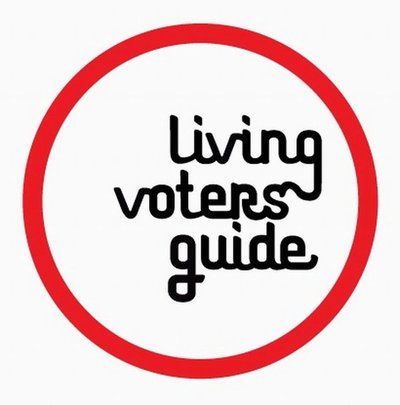October 7, 2010
‘Living Voters Guide’ invites Washington voters to hash out ballot initiatives
Voters across the country are entering the season of ballot measures. In Washington, this fall’s nine statewide ballot measures include two competing liquor initiatives, a bond measure for school upgrades, and a much-debated push for the state’s first income tax since the 1930s.
Into this fray enters an online experiment created by the UW in partnership with the Seattle civic nonprofit CityClub. The Living Voters Guide aims to spark a civil and objective discussion among Washington voters by letting them work together to write their own voters guide.
The guide borrows elements of Twitter’s rigid character limit and Google’s ranking system to try to get people of different views to learn from one another.
“We know that people have tuned out because they don’t trust the press, they don’t trust the politicians, they don’t trust government, they don’t trust business. There’s a trust deficit in society. And part of that is due to having few public communication experiences that allow citizens to explore issues in a constructive environment,” said Lance Bennett, a UW professor of communication and political science.
For CityClub, which is devoted to promoting civic engagement, the guide is an experiment in using new technology to reach a greater diversity of voters.
“The Internet seems to be a tool that shows preliminary promise in breaking down the steadfast correlation between education level and higher economic status and political and civic engagement,” said Diane Douglas, CityClub executive director. “That’s really exciting.”
For all its appeal, however, past experiments in digital democracy have had mixed success. Barack Obama’s website was at one point flooded with marijuana advocates and people who questioned his citizenship. And many comments on the web are less than civil.
“The level of much of the civil discourse on the Internet is abysmal,” noted project leader Alan Borning, a UW professor of computer science and engineering. “The features we’ve built try to nudge people toward a more thoughtful, deliberative process online.”
The Living Voters Guide is a twist on the traditional voter’s guide, with statements for and against. The tool takes the format of a pro-and-con list. In less than two minutes, users can choose an issue, slide a scale to indicate where they stand, and list pros and cons to support their stance, either by writing their own or picking from points added by others. Each pro or con is limited to just 140 characters, the length of a text message or Twitter update (though a longer, 500-character explanation is optional).
Users must agree to ground rules that include using civil language, representing individual views rather than those of an organization, and registering for only one account.
All this is meant to cut down on the grandstanding, trolling, flaming and other rude behavior that has become the norm on newspaper comment boards or discussion sites, as well as on gaming the system to strategically boost one point of view.
“We’re exploring different ways that we might be able to allow the public’s group intelligence to emerge, rather than having political discussions get undercut by extreme and sometimes malicious voices,” said Travis Kriplean, a UW doctoral student in computer science and engineering who led the site’s development. “We hope to see whether this particular model of large-scale political interaction creates a voter’s guide that is useful and engaging for the people who helped create it.”
The UW and CityClub worked to develop an interactive space that would promote discussion. The site uses a complex ranking system to move up points that were chosen by a large proportion of people who viewed them, and by people of differing opinions.
“We want to foster discussion, and the best way to do that is to prioritize the points of intersection between people with different values and ideologies,” said team member Jonathan Morgan, a UW doctoral student in human centered design and engineering.
Students in UW Communication Professor John Gastil’s political deliberation class and UW Communication Lecturer Kathy Gill’s digital democracy class will be trying the site, and some UW students will moderate. The core developers will study the site’s use as part of a research project on human-computer interaction sponsored by the National Science Foundation.
Creators say they hope the site will attract voters from across the state, from all backgrounds and points of view.
“Living Voters Guide should appeal to anybody who is confused about one or more of the initiatives,” said team member Deen Freelon, a doctoral student in communication. “That’s a big group of people, I think, even among educated voters.”

